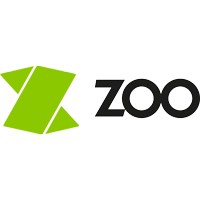As the global language industry continues to evolve rapidly driven by technology and an influx of investment, Slator is launching the Slator Language Service Provider Index (Slator LSPI) to focus our coverage of providers to the large enterprise language market.
Slator LSPI participants were selected referencing their revenues and market activities for 2016 and 2017, and they represent a meaningful composite of leading vendors.
This Is Not Just A List
The LSPI will be a useful resource to language industry stakeholders such as service vendors, buyers, consultant, technologists, and investors when used in conjunction with Slator’s online news service and research, such as our recent M&A and NMT reports. The Slator LSPI also provides an expandable building-block approach, similar to the MSCI in financial markets, as we deepen coverage geographically and within industry segments.
The Slator Language Service Provider Index contains 33 LSPs whose 2017 revenues exceed USD 30m plus two companies on a Watch List we are monitoring for inclusion in 2019. LSP revenues have been independently verified by Slator, led by Research Analyst Esther Bond, with company representatives or publicly accessible sources such as annual reports filed with regulators or stock exchanges.
Our approach to data collection is detailed in the Index section below. The combined revenue of the 33 Slator LSPI companies grew 16% in 2017 to USD 4.7bn. This is an attractive headline rate but growth across the index is mixed and the Slator LSPI is not a market-sizing exercise.
Key Takeaways
- TransPerfect is a sales machine. Its 12% organic revenue growth is an impressive USD 65.8m in absolute terms – more than double the USD 30m revenue required to make the Slator LSPI. In October 2017, TransPerfect CEO Phil Shawe presented at SlatorCon New York on how they built this sales machine and keep it well oiled.
- Media localization is booming with the growth of Over-the-Top (OTT) media services over the past three years. This is fueling growth for players such as BTI Studios (interview with CEO Björn Lifvergren at SlatorCon Zurich), ZOO Digital, IYUNO, VSI, SDI Media, and others.
- Video interpreting is growing in the United States, aided by regulatory drivers such as the Language Access framework. This has propelled players such as LanguageLine, Cyracom, and Stratus Video to double digit revenue growth.
- M&A was the major growth driver for many LSPs that saw double digit revenue increases, which implies that core organic revenue growth was relatively flat for many LSPs with a few notable exceptions such as TransPerfect.

